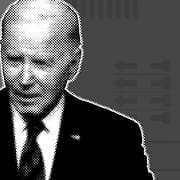2024 Battleground Polls Shift Power
This isn’t just about another election cycle. It’s about the survival of the America we know—our businesses, our economy, and our future. Like so many of you, I’ve been watching the latest battleground polls closely, and let me tell you, 2024 is shaping up to be one of the most pivotal elections in recent history.
Trump is back, Harris is pushing hard, and the nation is split right down the middle. As someone who spends their days immersed in corporate finance, I can tell you firsthand that the outcome of this election isn’t just political—it’s economic. It impacts the very structure of our financial systems, our investments, and even the future of industries that have been the backbone of America.
A Tight Race That Could Redefine America
The latest polling data paints a very real, very alarming picture. Trump and Harris are neck-and-neck in key battleground states. Ohio? Trump leads by a sliver. Pennsylvania? Dead even. As someone who analyzes risk and markets for a living, these tight margins are sending all kinds of signals.
For those of us in finance, these polls are more than just numbers—they’re indicators of how capital markets, taxes, and even labor policies could shift depending on who takes the White House in 2024. But beyond that, it’s a reflection of the economic mood in this country.
I’ve heard it all from clients and colleagues: concerns about taxes under a Harris administration, hopes for a return to deregulation under Trump, fears about inflation, and the reality of an economy hanging in the balance. I get it. I’m right there with you, watching, waiting, and planning.
Why Your Business Should Care About This Election
If there’s one thing I’ve learned as a corporate finance consultant, it’s that politics and economics are inextricably linked. Whoever wins this election will shape the U.S. economy for years to come.
Here’s how the candidates stack up when it comes to issues that matter to your bottom line:
- Taxes: Trump’s potential return could mean another wave of corporate tax cuts. If you’re a business owner, this could translate to more capital on hand for growth and investment. Remember 2017? It’s a blueprint. But Harris? Expect her to push for tax hikes on high-income earners and corporations. This could impact your strategy for investments, mergers, and acquisitions.
- Regulation: Let’s face it, no one likes red tape, and a Trump administration would almost certainly focus on cutting through it. Less regulation can mean more freedom to innovate and expand, especially for industries like energy, tech, and manufacturing. In contrast, Harris has already signaled her support for stronger regulatory oversight, particularly in sectors like healthcare, tech, and environmental protection.
- Jobs and Wages: Harris is pushing hard on labor reforms, and you know what that means: higher minimum wages, stronger unions, and potentially increased labor costs for businesses. While good for workers, this could squeeze profit margins for industries already facing tight competition. Trump, on the other hand, leans more toward boosting business incentives and deregulating the job market, which could keep costs lower but could mean less support for working-class Americans.
The Battleground States: Economic Barometers
If you’re looking for where the real action is, it’s all about the battleground states. Ohio, Pennsylvania, Georgia—these states are more than just political flashpoints, they’re economic ones too.
In Ohio, a slight lead for Trump tells me that the business community—particularly in manufacturing—is leaning toward his more laissez-faire approach. But it’s close, which means people are still on the fence about Harris’ more worker-friendly policies.
In Pennsylvania, energy policy is key. Harris is pushing for greener alternatives, while Trump is focusing on bringing back coal and fracking. This is going to be a make-or-break issue for many voters, and for industries tied to energy, this election could determine the future of regulations and subsidies.
So, What’s Next?
I can tell you right now: you need to start planning. As a consultant, this is the time to get proactive, not reactive. Here are three things you should be doing right now:
- Scenario Planning: Run your numbers based on a Trump victory and a Harris victory. Where will your taxes go? What regulatory hurdles could you face? How will wage changes impact your labor costs?
- Diversify: If you haven’t already started diversifying your investments, it’s time to do it. The volatility of this election means there’s no certainty in the short term, and spreading your risk is crucial.
- Stay Agile: The policies coming out of the 2024 election could swing the economy either way. Make sure your business is prepared to pivot quickly. Whether it’s adapting to new regulations or capitalizing on potential tax breaks, flexibility will be key.
Final Thoughts
As someone who’s deeply involved in the world of finance, I cannot stress enough how pivotal this election is. It’s not just a choice between two candidates, it’s a decision about the direction of the U.S. economy. Whether you’re running a business, managing a portfolio, or just trying to navigate the complexities of today’s economic landscape, the 2024 election will impact your future.
Please, if you found this article helpful, share it with your network. And if you’re as interested in the intersection of politics and finance as I am, subscribe to my U.S. Economy Newsletter. We’re testing out a new format based on requests from over 1,000 readers, so check your inbox daily for updates.
Finally, I’ve just turned on commenting! I’d love to hear your thoughts on this election—you can comment anonymously below. Let’s keep the conversation going!









Leave a Reply
Want to join the discussion?Feel free to contribute!